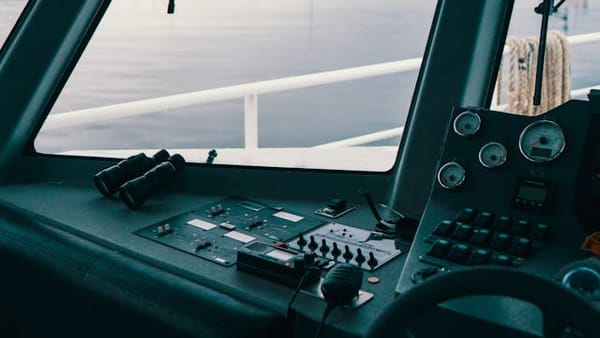Navigating the Future: The Latest Innovations in Boating Technology
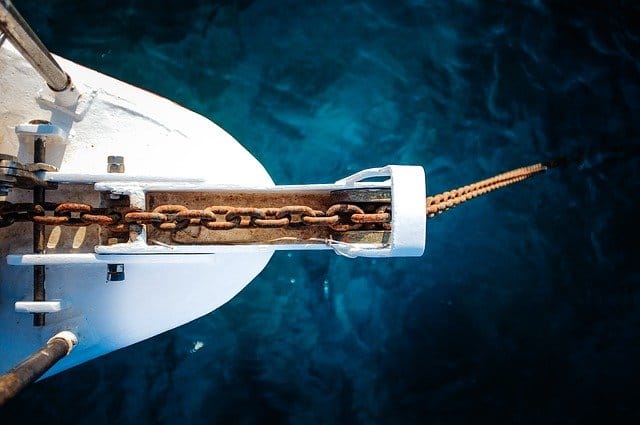
In recent years, boating technology has experienced remarkable advancements, transforming how we navigate, power and enjoy our time on the water. From eco-friendly propulsion systems to cutting-edge navigation tools and enhanced safety measures, the marine industry is embracing innovation to meet the needs of modern boaters.
It’s more than just gas vs. electric boats. Keep reading to dive into the latest trends and breakthroughs in boating technology and get a glimpse into the future of life at sea whether you’re leaving a marina or private boat lift in a fishing boat, a motor yacht, a cuddy cabin or a saltwater fishing boat.
1. Electric and Hybrid Propulsion Systems
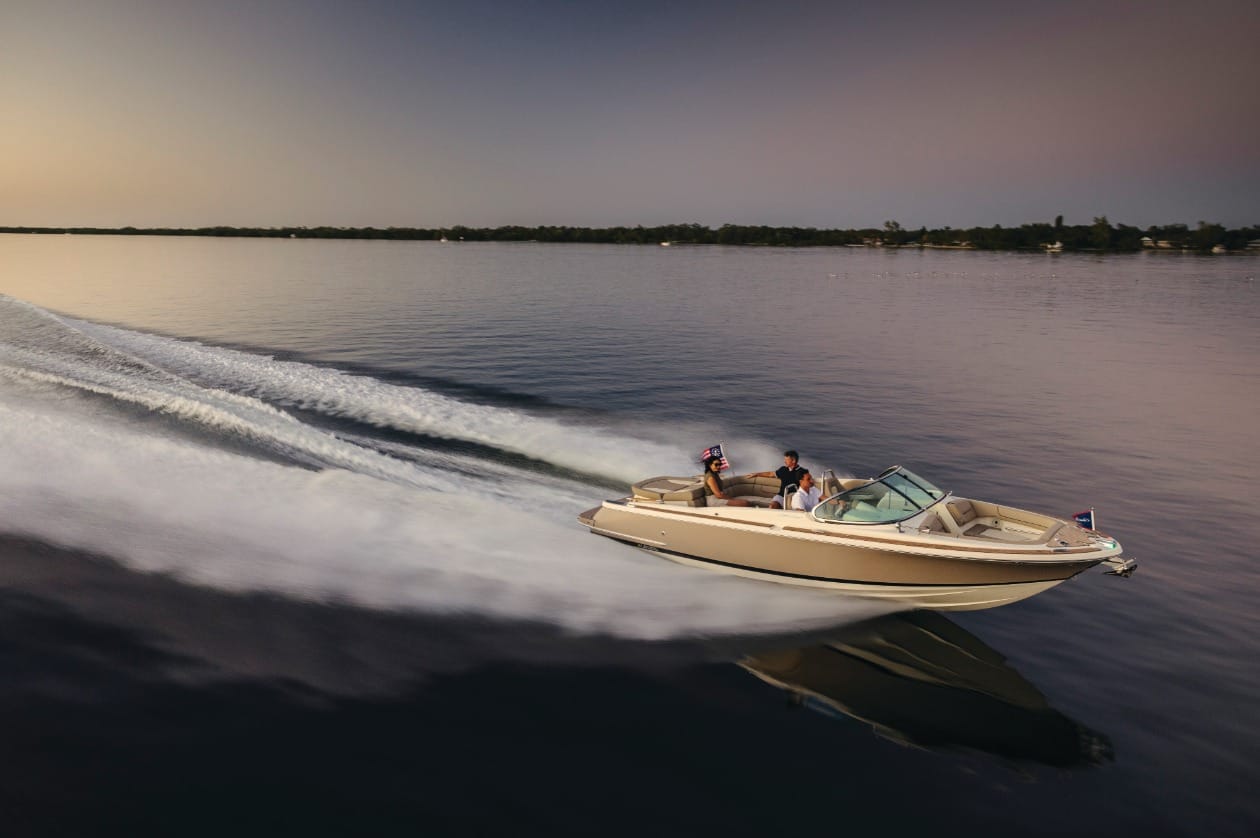
The rise of electric and hybrid propulsion systems is one of the most significant shifts in the boating industry. As environmental awareness grows, more boaters are seeking sustainable alternatives to traditional engines. Advances in battery technology are driving this trend in the production of higher energy density, faster charging and longer lifespans.
- Electric Boats: Companies like X Shore and Candela are pioneering all-electric boats that offer zero emissions, silent cruising and reduced maintenance. These vessels are ideal for eco-conscious boaters who want to minimize their carbon footprint.
- Hybrid Systems: Hybrid propulsion combines electric and diesel engines, providing the flexibility of traditional power with the efficiency of electric motors. Greenline Yachts and other manufacturers are incorporating hybrid systems that allow for extended cruising ranges and reduced fuel consumption.
2. Autonomous and Smart Navigation
The boating industry is embracing autonomy and artificial intelligence (AI) to enhance navigation, safety and convenience. Smart navigation systems, integrated with advanced sensors and AI, are making it easier for boaters to plot routes, avoid obstacles and dock with precision.
- Autonomous Docking: Manufacturers like Volvo Penta have introduced self-docking technology. This uses sensors and cameras to guide boats into tight slips with minimal captain input.
- Smart Autopilots: Advanced autopilot systems are now equipped with machine learning algorithms, enabling boats to adapt to changing conditions and maintain a steady course, even in rough seas.
- Collision Avoidance: New radar and sonar technologies, combined with AI-driven software, help detect nearby vessels, debris and marine life, alerting the captain and taking corrective action if needed.
3. Foiling Technology for High-Efficiency Cruising
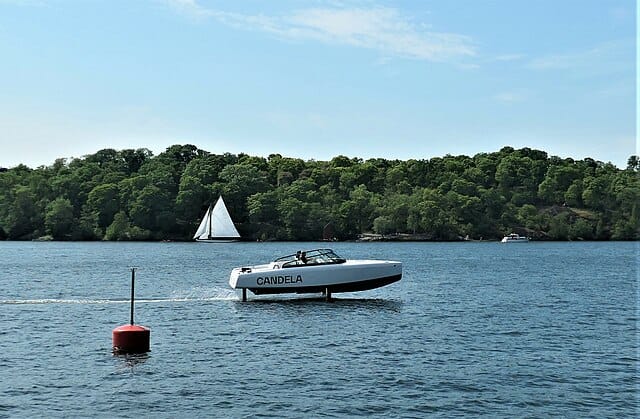
Hydrofoils, once the domain of high-speed racing yachts, are becoming more mainstream in recreational boating. Foiling is when the hull is lifted out of the water, reducing drag and increasing efficiency.
- Electric Hydrofoil Boats: Companies like Candela and Navier are at the forefront of electric hydrofoil technology, creating boats that glide smoothly above the water. These vessels offer unparalleled efficiency, using up to 80% less energy than traditional boats.
- Enhanced Stability and Speed: By reducing drag, foiling boats can achieve higher speeds and smoother rides. This innovation appeals to boaters looking for a thrilling and eco-friendly experience when they motor out from private boat dock rentals.
4. Smart Boat Connectivity
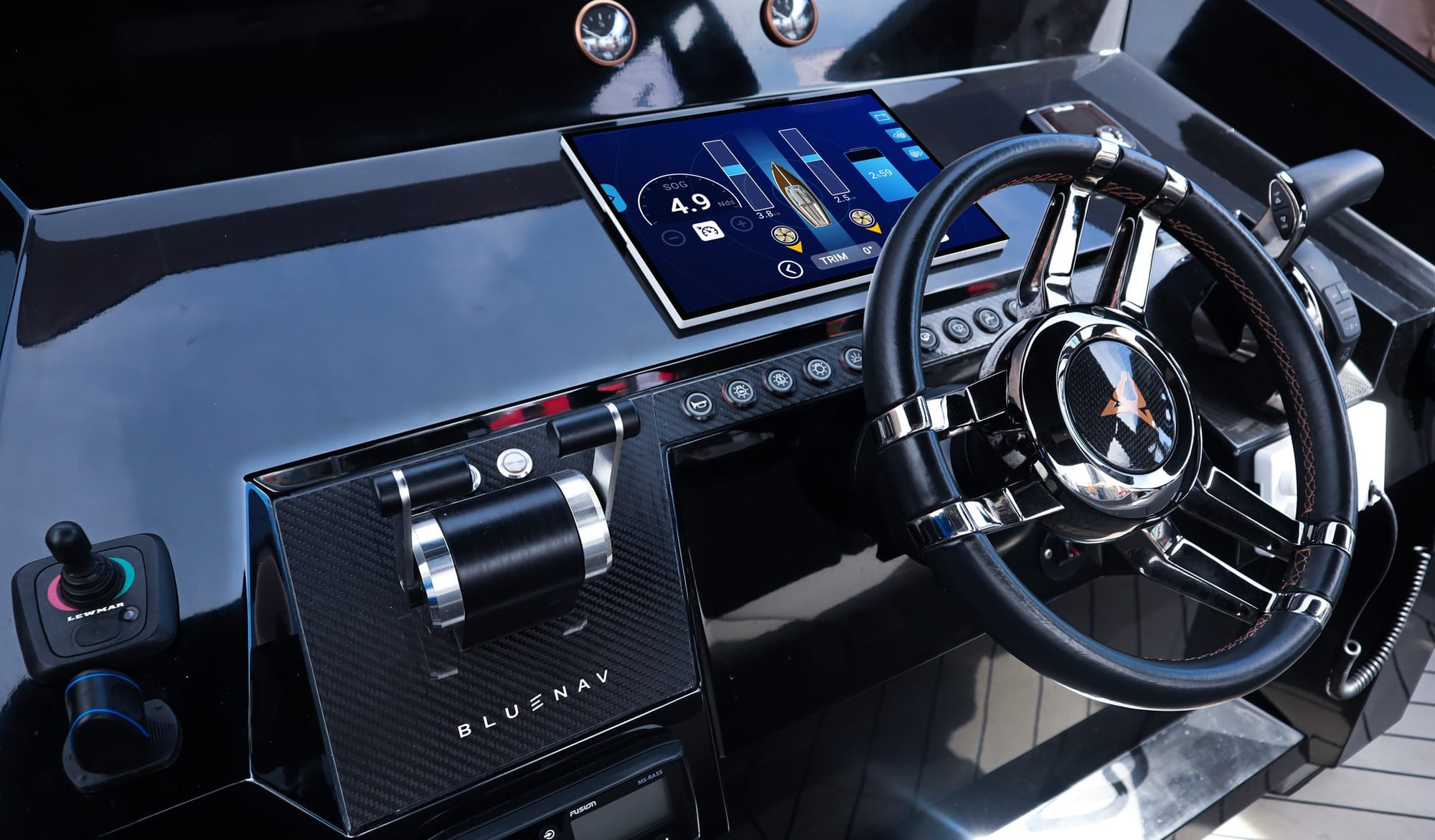
Boats are becoming smarter and more connected than ever. Marine electronics manufacturers are using smart technology to allow boaters to monitor and control their vessels remotely.
- Smart Vessel Monitoring: Systems like Garmin BoatConnect and Raymarine YachtSense provide real-time data on engine performance, battery status, bilge water levels and more. This is all accessible from a smartphone app.
- Integrated Onboard Systems: Modern boats have integrated systems that control lighting, climate, entertainment, and security through a single interface, offering a seamless and luxurious onboard experience.
5. Advanced Hull Materials and Designs
Innovation in hull materials and design makes boats lighter, stronger and more fuel-efficient. Advanced composites, such as carbon fiber and graphene-infused resins, are revolutionizing boat construction.
- Lightweight Composites: New materials like carbon fiber reduce vessels' weight without compromising strength and improve speed and fuel efficiency.
- Hydrodynamic Hull Designs: Advances in hydrodynamic modeling result in hull shapes that minimize drag and maximize stability. This enhances both performance and comfort.
6. Sustainable Boat Manufacturing
Sustainability also influences how boats are built and maintained. From using recycled materials to minimizing waste during production, marine manufacturers like BlueNav and Nautique are adopting eco-friendly practices.
- Recycled and Biodegradable Materials: Companies are exploring the use of recycled plastics and biodegradable composites to reduce the environmental impact of boat manufacturing.
- Energy-Efficient Manufacturing Processes: Solar power and other renewable energy sources are being used in production facilities to help reduce the carbon footprint of boat building. Clean energy companies
7. Enhanced Safety Features: Innovation Meets Security
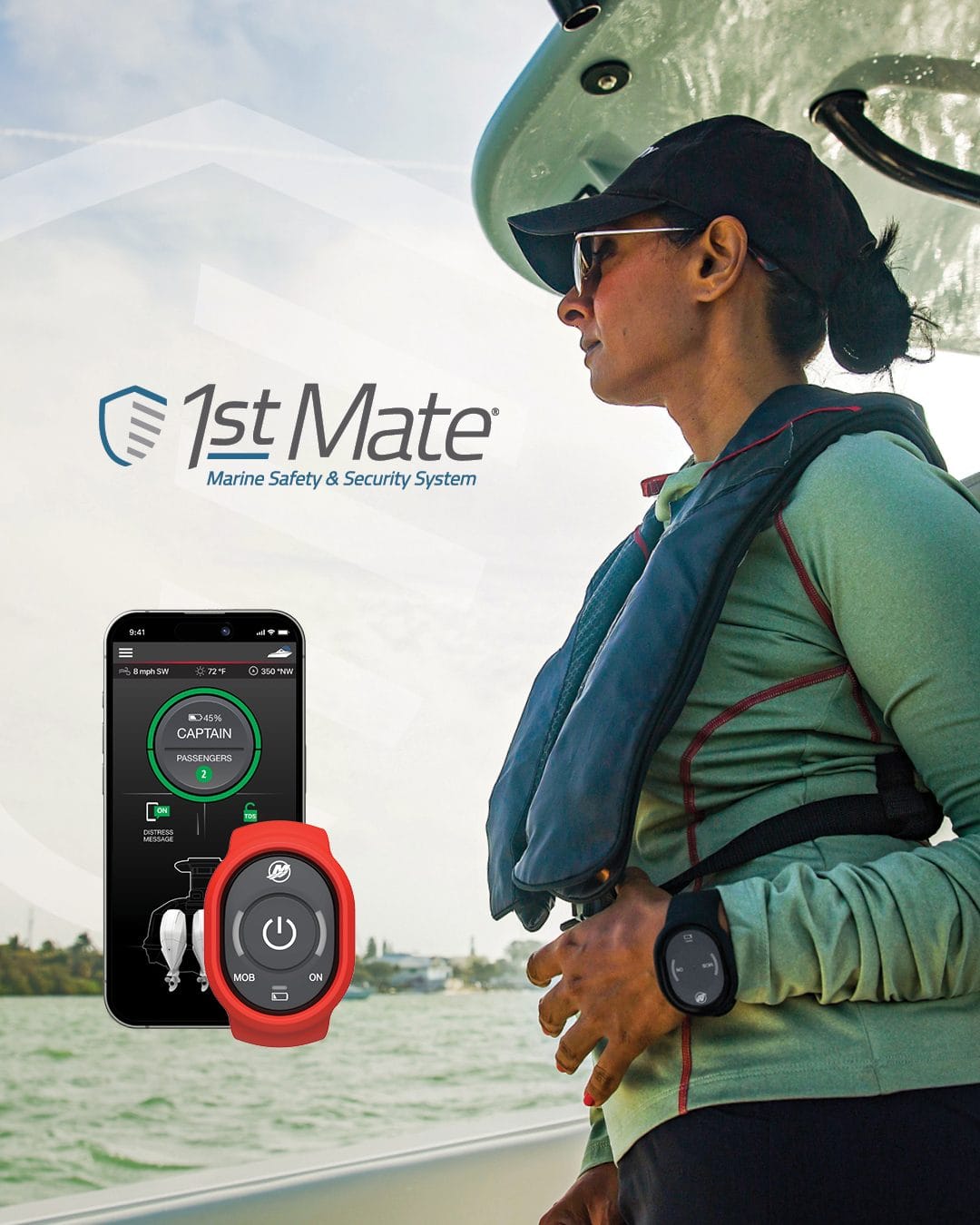
Safety is a top priority for boaters, and the latest technological innovations are making boating safer than ever before.
- Wearable Man Overboard Devices: New man overboard (MOB) devices like 1st Mate and MOB+ are equipped with GPS and wireless connectivity to automatically alert the crew if someone falls overboard. When combined with PLBs and EPIRBs, this adds an extra layer of security.
- Improved Life Rafts and Flotation Devices: Innovations in life rafts and personal flotation devices (PFDs) focus on enhanced buoyancy, compact designs and integrated emergency signaling features.
- Fire Suppression Systems: Modern boats are being equipped with more than just a traditional fire extinguisher. They’re automated with fire suppression systems that detect and extinguish fires quickly, protecting both the vessel and its occupants.
The Future of Boating: What’s Next?
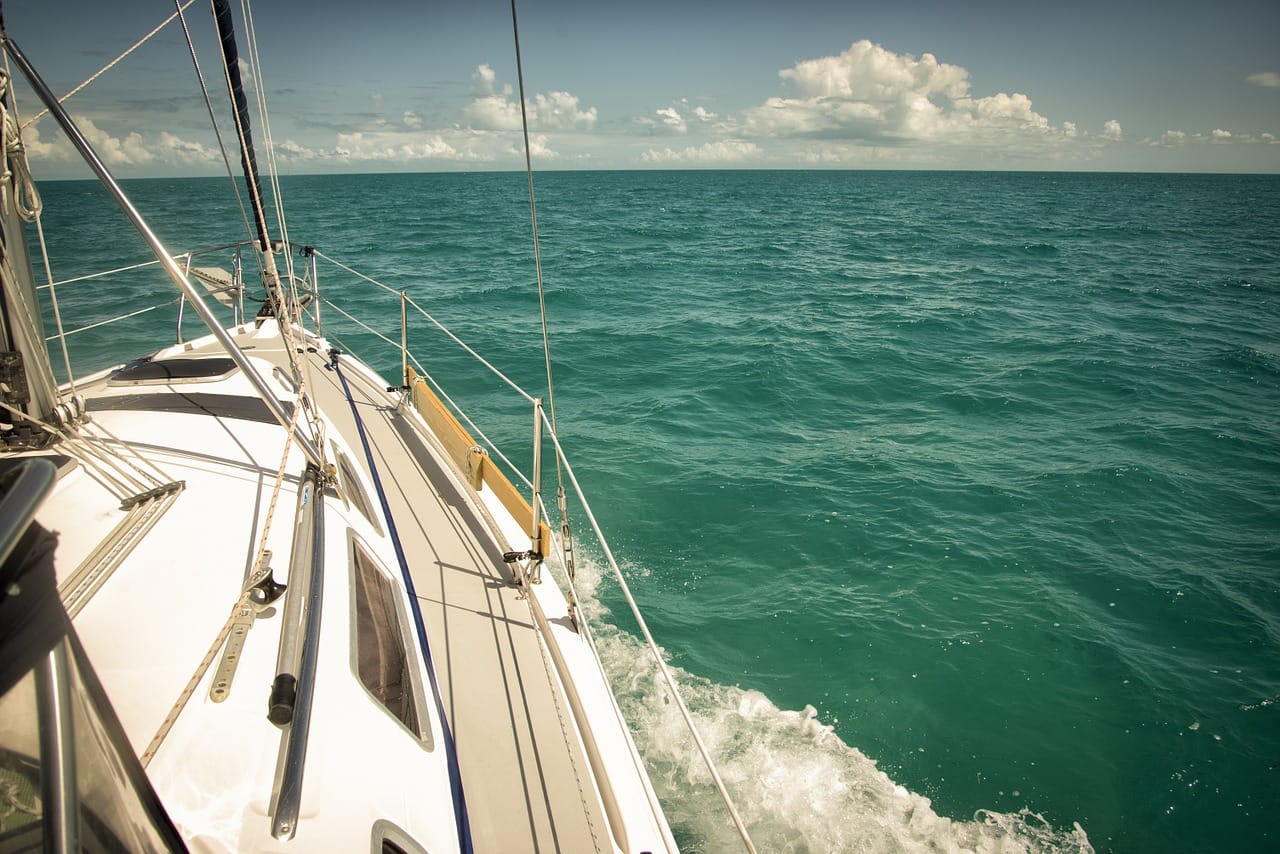
The path of boating technology points towards increased automation, sustainability and enhanced user experience. Future innovations may include fully autonomous yachts, more efficient solar-powered vessels and AI-driven maintenance systems that predict and address issues before they arise.
For recreational and commercial boaters, these innovations promise to make time on the water safer, more enjoyable and more environmentally responsible whenever you leave the dock, marina or private boat lift for rent.



